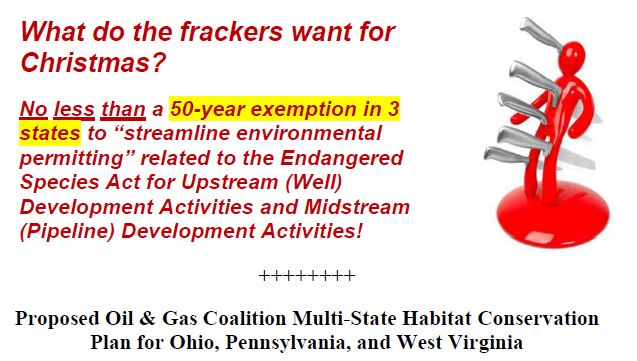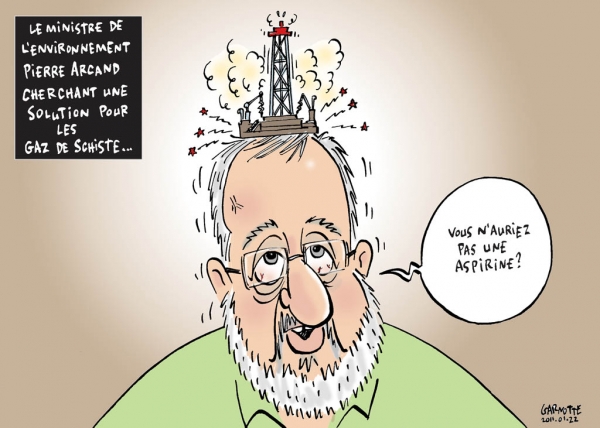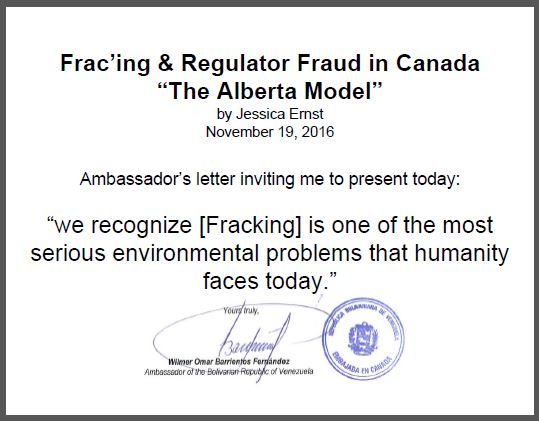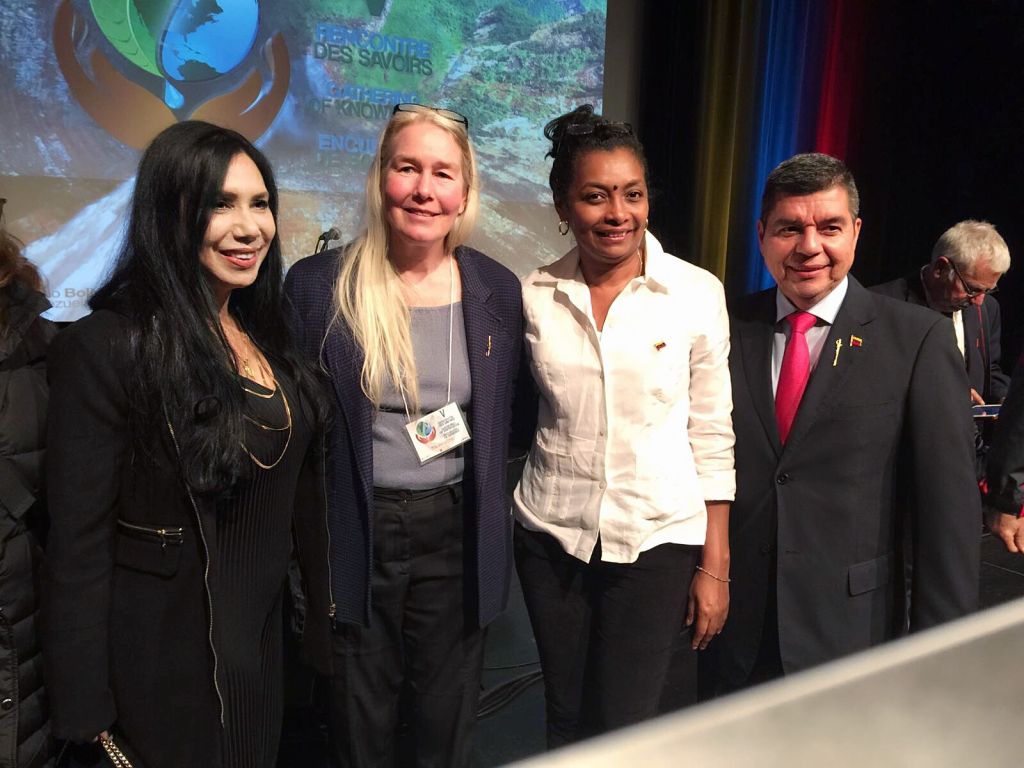Quebec Premier Philippe Couillard Reneges on Promise to Stop Fracking in St. Lawrence, Drill, Bébé, Drill by Alberta Oil Magazine, September 26, 2016
Quebec has come under fire from environmentalists for allowing fracking on an island in the Gulf of St. Lawrence. Liberal Premier Philippe Couillard says he’s sticking to a deal inked by the previous Parti Québécois government to allow test drills on Anticosti, a 200-kilometer long island known for its salmon fishing. Couillard had previously said he’d can the project, telling CBC News “the destruction of a natural environment like Anticosti will not bear my signature.”
Quebec City-based fracking firm Petrolia, will draw up to 30 million liters of water at three test sites, much of it from rivers on the island. The wastewater will be treated and dumped into the Gulf of St. Lawrence.
The agreement with Petrolia was signed before the 2014 election. “The contract is there. We have to follow it,” Couillard says. “It doesn’t mean that we’re happy. We’re going to protect that unique ecosystem, I can tell you that.” … [Emphasis added]
Questerre declares a victory in Quebec, but environmentalists beg to differ by Reid Southwick, December 12, 2016, Calgary Herald
[How low can a company go?]
After Quebec imposed a ban on shale gas development in 2011, Alberta-born Michael Binnion learned French.
The chief executive of Calgary’s Questerre Energy Corp., which has a 25 per cent stake in an expansive resource play in southern Quebec, stuck around la belle province, later becoming chairman of its oil and gas association.
Binnion made it his mission to convince Quebecers that shale gas could be extracted safely, and that they could share in the spoils.
Five years later, he’s declaring a major victory.
“We’ve managed to make Quebec a pro-oil and gas place, when it was a very anti-oil and gas place,” Binnion said in an interview Monday, days after the Quebec legislature approved a bill that opens the door to resource development.
Bill 106 creates a new agency to implement the Quebec government’s clean energy agenda, while it also [massively deregulates] to oversee new oil and gas development, including fracking.
Questerre’s shares got their biggest lift in more than eight years on Thursday, when the bill seemed likely to pass, and continued to rally on Monday, when the stock closed at $1.11, up nearly 40 per cent over Friday’s close.
Still, the stock remains well short of its record high of $5.48 in May 2008, the same year Questerre and Repsol [Company that caused the world record 4.8M frack quake on the day of Ernst’s Supreme Court of Canada hearing, January 12, 2016] made their discovery of Quebec assets.
The new provisions have stoked opposition among environmental, civic and indigenous groups, who argued the bill should have added a moratorium on fracking and greater protection for landowners.
[Media Reality Check:
Citizens, municipalities, farmers, landowners, families, small business owners and groups are upset at the massive rights decimation by Bill 106, copied after abusive Alberta]
Karel Mayrand, a director with the David Suzuki Foundation, rejected the idea that Quebec has suddenly embraced the oil and gas industry. He argued the government merged highly unpopular energy exploration measures with a widely accepted clean energy bill.
Mayrand said the move would be similar to passing an anti-smoking law that also clears the way for development of the tobacco industry.
“Many citizens in Quebec and grassroots organizations are openly calling for civil disobedience against the oil industry,” Mayrand said, noting his organization does not call for such behaviour.
Questerre holds a 25 per cent interest in roughly 404,700 hectares in the St. Lawrence Lowlands, covering the resource formation known as the Utica.
Some of the land abuts highly populated areas, including suburban Montreal, which Binnion vows to avoid with any future drilling. [Since when do unconventional oil and gas company executives tell the truth or keep their promises?]
The company’s Quebec assets are geologically similar to the Ohio Utica, which produces almost three billion cubic feet of natural gas per day, according to the financial services firm Canaccord Genuity.
Gas from the Quebec Utica would likely enjoy premium pricing, given its proximity to customers in the province, Sam Roach, an associate analyst at Canaccord Genuity, said in a November report.
“Advantageous pricing would potentially make the play competitive in the current North American gas market,” Roach wrote, noting the gains could be offset by a lack of pipeline connections and oilfield equipment and materials.
Even more hurdles remain. Once Quebec outlines the rules for development in regulations, Spanish energy giant Repsol — Questerre’s partner — will likely decide whether to sanction the project, Roach said.
For Binnion’s part, he plans to bring his sales pitch for shale gas development to local communities he believes will accept his company’s project.
“We’re not going to drill where they don’t want us,” Binnion said. “There are people that want us in Quebec.” [How fast ’til that promise is violated?]
With files from Bloomberg and the Montreal Gazette [Emphasis added]
[Refer also to:
A People On its Knees! by Jacques Tétreault, Coordonnateur général adjoint RVHQ
Saint-Dominique, Le 11 décembre 2016
This lovely period of Christmas festivities is the time for gift giving!
It is what we deserve and it falls to us from heaven unexpectedly.
Today, the 10th of December, 2016, in the wee hours of the morning, the people of Quebec made a stunning gift, though far above their means : our government adopted Bill 106.
What a gift! You do not know what it is? Well, you will be surprised at our generosity.
We have just given access to the land beneath our feet to the oil and gas companies of this world. More like incontestable rights, now that the law has been adopted by the evocation of closure.
This means that the subsoil no longer belongs to Quebec but to those who acquired their claim at 10 cents a hectare. We are so rich here in Quebec, we are so in control of business, that our government, after having imposed austerity, oops, I should say “budgetary rigour”, just adopted a law which sanctions this gift.
Not only are we no longer “maîtres chez-nous” (masters in our own house), we have just renounced fair recompense for our collective coffers. These companies can henceforth enter wherever they want, drill, expropriate you if you don’t accede, withdraw oil and gas in tiny quantities (because our subsoil does not overflow) and not pay the good people as these operations fall under the new law which permits it for free.
To properly wrap the gift, our government has bought a lovely wrapping paper via an investment company, Ressources Québec. Our hard earned money saved under the “budgetary rigour” which has burdened the public services for 3 years, will finance these companies. Without our financial help, all this would not be possible.
A people on its knees! Santa Pierre Arcand under the benevolent eye of his boss Couillard, just made a superb gift of our savings to their friends. [Emphasis added]
Le ministre de l’environnement Pierre Arcand cherchant une solution pour les gaz de schiste Cartoon by Garnotte in Le Devour
[Refer also to:
Public Herald’s Melissa Troutman & Josh Pribanic report on their 3 year investigation of Pennsylvania DEP records on thousands of cases of water contamination from fracking. There are now calls for a Criminal Investigation at the state and federal level into why so many of these cases have been brushed aside or concealed from public view. [Criminal investigation is also required in Canada and Alberta, not only of the regulators engaging in fraud covering-up the many cases of drinking water contamination, but also the many academics and “experts” helping the regulators better the cover-up]
Transcribed from the clip:
By the time we publish at the end of this year, we have over 5,000 complaints
…
We started to see that there are systematic ways that DEP is keeping all of this hidden.
Many many water contamination cases are kept hidden. They’re kept off the public record. We published initially nine different ways DEP is doing this. Our upcoming report, we have even more ways DEP is keeping water contamination hidden.
2016 11 19: V ENCUENTRO DE SABERES MONTREAL 2016 Frac Conference in Montreal, Quebec

Ernst title slide of her talk at the Montreal Frac Conference. Youtube coming soon.
During the 2011 Atgas blowout investigation in Bradford County, Chesapeake Energy was allowed to dismiss their own pre-drill water test results to avoid liability for contaminating a water supply. This simple act by DEP essentially changed the background water quality data for the area, creating an artificial history of drinking water quality.
***
Meanwhile, oil and gas industry demands for Christmas in Ohio, Pennsylvania and West Virginia:
2016 12 07: Industries Request 50 Year Exemption from Endangered Species Act
Nine Oil and Gas companies (including pipeline, drilling and infrastructure) are requesting a joint, 50-year ITP . The nine companies are looking for a blanket exemption from the Endangered Species Act in Pennsylvania, Ohio and West Virginia.
The exemption, called an “ITP” or Incidental Take Permit – is a term that translates as approval (Permit) to kill (Take) endangered species when ever (Incidental) these species happen to get in the way of gas development.
The species in this request are all mammals – 5 different endangered and/or threatened bats.
Think about it – A 50-year exemption of the Endangered Species Act.
Here is a link to the announcement as it appeared in the Federal Register:
The next few years may see an exponential increase in weakening environmental regulations.
Two of the five Public Hearings are in Pennsylvania:
Monday , December 12 in Houston PA
Friday, December 16th – Genetti Hotel – 5 – 7 PM.
MERRY CHRISTMAS!



